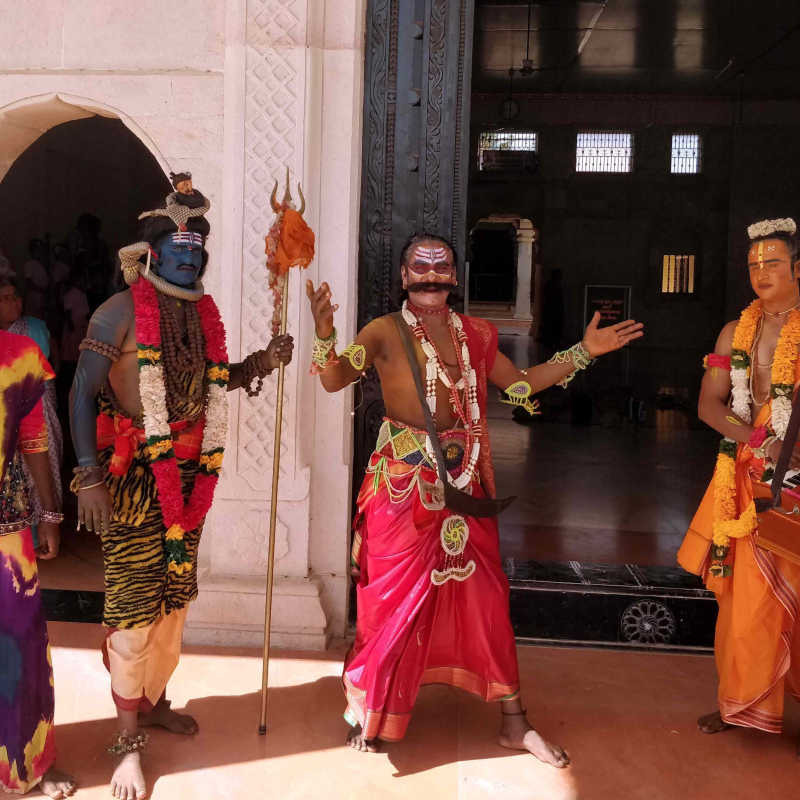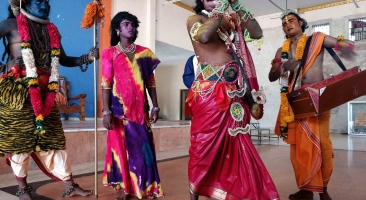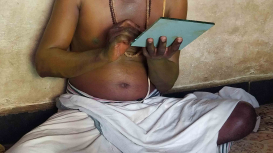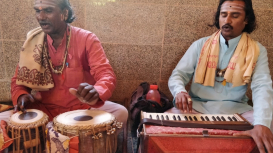Bahurupis of Karnataka, demarcated as belonging to the OBC category according to the state’s census reports, are itinerant performers of what are referred to as hagalu vesha or pagati vesha. Impersonating mythological and sometimes social characters, they stage amusing episodes to offer spiritual consolation via emoted stories and songs and sometimes also comment on daily events. While a sizeable number of this scattered group of performers belongs to the Lingayat community, a few of them have been identified as Muslims and some are referred to as ‘sadhus of the cemetery’. As is the practice of bahurupis elsewhere in India, they are nomadic and usually only male members of the community perform orally passed down musical traditions nurtured and guarded within particular families of performers. Often lacking identification documents (and unable to avail official support systems for not having them) owing to their nomadic lifestyle, and encountering a world where entertainment variables have seen a sea change, they end up doing odd jobs like selling plastic knick-knacks or even full-time begging. And yet, some of them like Chennappa Ganachari of Belgaum, persist in sticking to what they understand as their vocation. This project seeks to study, critically document and hopefully curate the practices of this peripatetic community that embraces the ‘manyness’ of performance, precisely the politics of playing upper-caste Hindu gods, and long lost enchantments of myth and magic, accessed from palpably conspicuous everyday realities of deprivation.
The study proposes a reflexive examination of the performance practices as well as modes of self-representation accessed by selected members of the bahurupi community drawn from theories of performance and life-writing. The thrust here is to explore the equations between bodies and representable roles that the very theatricality of their performance seems to hint at as well as the affective implications of performing upper-caste divinities and the kind of peripatetic control over social space that such performance briefly confers on this largely deprived group of performers.



